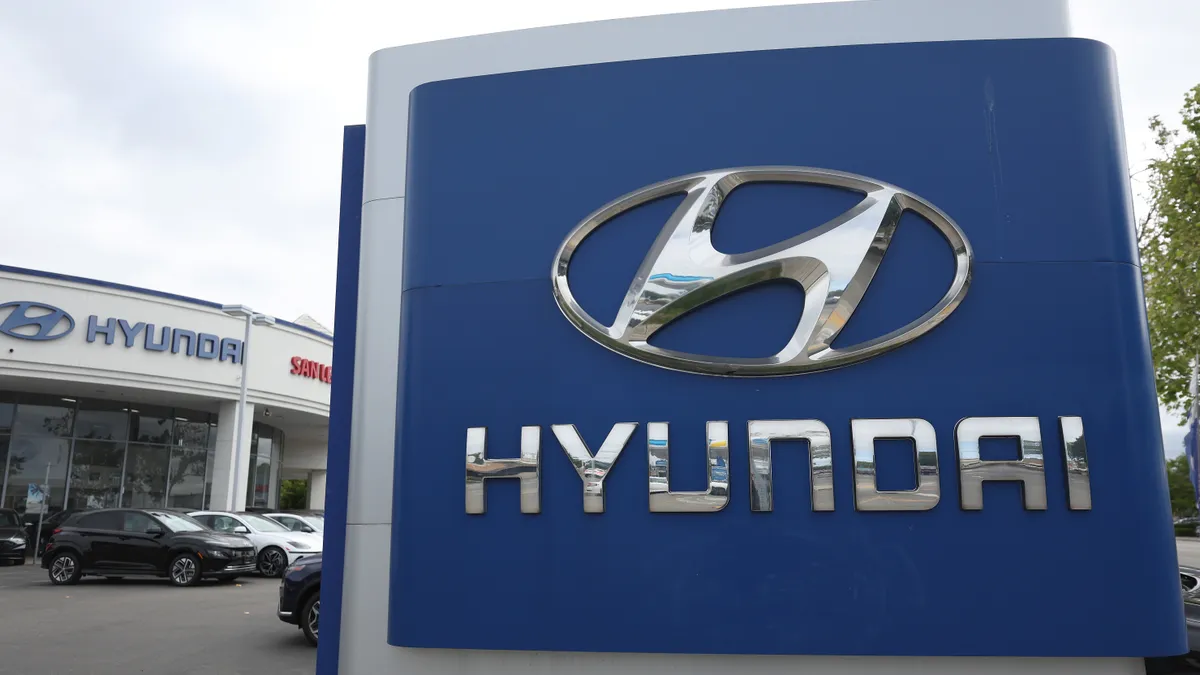Dive Brief:
- An Alabama manufacturing facility for automaker Hyundai illegally jointly employed a 13-year-old to work as many as 50 to 60 hours per week making auto parts between 2021 and 2022, a U.S. Department of Labor lawsuit alleged Thursday.
- The minor employee allegedly worked on an assembly line with machines that formed sheets of metal into auto parts. DOL claimed that a staffing agency which supplied labor to the facility “knew had or had reason to know” the employee was underage. The facility allegedly dismissed two other employees it believed to be minors who were referred by the staffing agency.
- DOL asked the U.S. District Court for the Middle District of Alabama to issue an order requiring that Hyundai disgorge all profits related to its use of child labor, alleging that the component parts and fully assembled vehicles produced at the facility were “hot goods” under the FLSA. In an email to HR Dive, Hyundai said it is “reviewing the new lawsuit and [intends] to vigorously defend the company.”
Dive Insight:
The agency’s lawsuit is a follow up to news last year that DOL had launched an inquiry into alleged child labor violations by Hyundai in Alabama. In 2022, the department obtained a federal court order to stop a separate Hyundai manufacturer from employing minors between the ages of 13 and 15 and shipping or delivering any goods produced in violation of child labor laws.
“A 13-year-old working on an assembly line in the United States of America shocks the conscience,” Jessica Looman, administrator of DOL’s Wage and Hour Division, said in a press release. “As we work to stop illegal child labor where we find it, we also continue to ensure that all employers are held accountable for violating the law.”
Hyundai said it worked with DOL to investigate the allegations and “took immediate and extensive remedial measures.” According to the company, these measures included terminating its relationships with staffing agencies identified by DOL as potential violators, completing an investigation and review of its U.S. supplier network and implementing more stringent workforce standards as well as independently verified audits for its Alabama suppliers.
The company added that it presented information to DOL to resolve the matter “while detailing the reasons why no legal basis existed to impose liability under the circumstances.” Hyundai said DOL sought to apply “an unprecedented legal theory that would unfairly hold Hyundai accountable for the actions of its suppliers and set a concerning precedent for other automotive companies and manufacturers.”
“Hyundai’s facilities, including Hyundai Motor Manufacturing Alabama (HMMA) are committed to ensuring all of our own facilities comply fully with local, state, and federal laws,” the company said. “We have rigorous policies and procedures in place to maintain compliance with applicable laws and high standards of ethical conduct.”
The FLSA prohibits child labor, generally setting 14 years of age as the minimum age for employment and limiting hours worked by minors under the age of 16. The law’s “hot goods” provisions permit DOL to seek a court order to prevent the interstate shipment of goods produced in violation of the law, according to a fact sheet.
The actions against Hyundai are part of a larger DOL enforcement initiative on the subject of child labor. This year alone, regulators reached a $5 million settlement with a group of California poultry processors over alleged FLSA violations including employment of minors. DOL similarly obtained a temporary restraining order against a janitorial service that allegedly employed children who cleaned and sanitized meat processing plants in multiple states.
Against that backdrop, multiple state and local governments have relaxed some child labor provisions to ease labor shortages. DOL, meanwhile, last year announced changes to the manner in which it assesses child labor civil monetary penalties. The department said it would assess those penalties on a per violation basis, rather than a per child basis as it previously did.
Correction: A previous version of this story incorrectly described the FLSA's child labor provisions.














